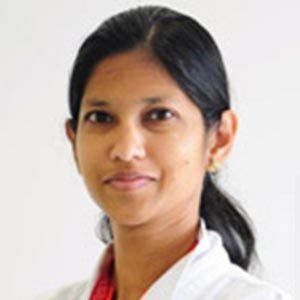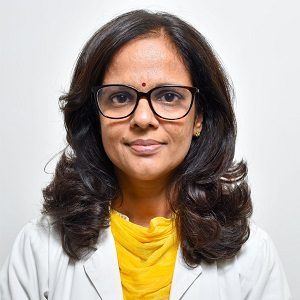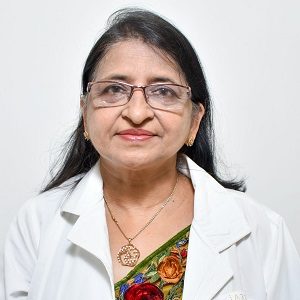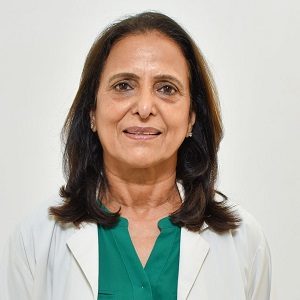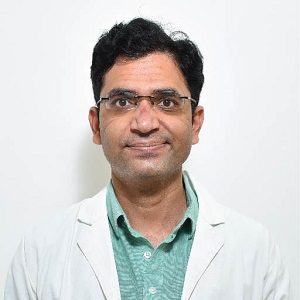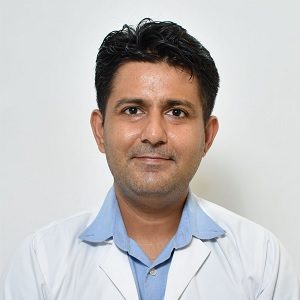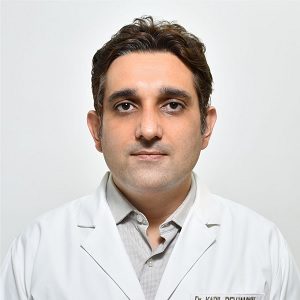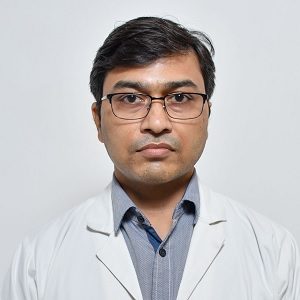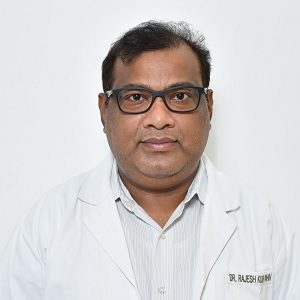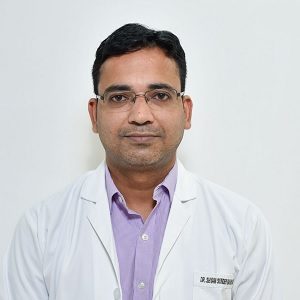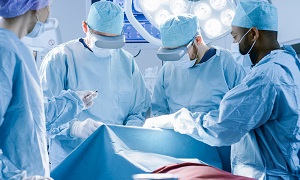Best Doctors in India for Male Breast Cancer Treatment
- Ophthalmologist, Gurugram, India
- Over 13 years’ experience
- Medanta-The Medicity, Gurgaon
Profile Highlights:
- Dr. Svati Bansal is an esteemed consultant and practitioner of ophthalmology in Gurugram.
- Her specialty lies in orbit and oculoplasty, ocular oncology, ocular trauma, and neuro-ophthalmology.
- She has fellowships in neuro-ophthalmology and ocular motility, oculoplasty, and facial aesthetics, and ocular oculoplastic and ocular oncology.
- Obstetrician & Gynaecologist, Gurugram, India
- Over 18 years’ experience
- Artemis Hospital, Gurgaon
Profile Highlights:
- Dr. Asha Sharma is one of the best Gynecologists & Obstetricians in Delhi/ NCR. She practices Laparoscopic Surgery (Obs & Gyn) to assist patients with their Gynaec problems.
- The doctor provides consultations and checkups for maternal care, PCOS/PCOD, egg donation, diseases in pregnancy, irregular or excessive bleeding, and other menstrual disorders in adolescent girls, etc.
- Obstetrician & Gynaecologist, Gurugram, India
- Over 35 years’ experience
- Artemis Hospital, Gurgaon
Profile Highlights:
- Dr. Nutan Agarwal is an eminent Obstetrician & Gynecologist.
- Dr. Nutan Agarwal is credited with pioneering various PCOS medications in India, such as Metformin and myoinositol.
- She has also developed several treatments, such as ablation in multiple pregnancies, and formulated a guideline for managing irregular uterine bleeding in the Indian context.
- Obstetrician & Gynaecologist, Gurugram, India
- Over 40 years’ experience
- Artemis Hospital, Gurgaon
Profile Highlights:
- Dr. Veena Bhat is a senior obstetrician and gynecologist. Her clinical interest lies in Endoscopic management of infertility, Adolescent Gynecology, High-risk pregnancy, Menopausal health, and Minimal invasive surgery in Gynae.
- The doctor performs Gynecological Endoscopy, both Laparoscopy & open (Hysteroscopy); Laparotomy, Endometriosis Surgery, Ovarian Cystectomy, and myomectomy with decent success.
- Gastroenterologist, Gurugram, India
- Over 7 years’ experience
- Artemis Hospital, Gurgaon
Profile Highlights:
- Dr. Abhinandan Mishra is one of the young Gastroenterology doctors in Gurugram who is particularly interested in inflammatory bowel disease treatment.
- Dr. Abhinandan Mishra offers Endoscopic Retrograde Cholangiopancreatography, Ascites tap, Endoscopy, Peroral Endoscopic Myotomy, Capsule Endoscopy, Esophageal Manometry, Magnetic Resonance Cholangiopancreatography, etc.
- Interventional Cardiologist, Gurugram, India
- Over 15 years’ experience
- Fortis Memorial Research Institute
Profile Highlights:
- Dr. Anurag Passi is a young cardiologist in Gurugram and is well-known for his meticulousness, precise diagnosis, and compassionate care of patients.
- He is proficient in performing procedures like Primary Angioplasty, Transradial Intervention, Pacemaker, ICD and CRT implantation, and Complex coronary interventions (Unprotected Left Main, Bifurcation, and CTO).
- Presently, he is practicing as a Senior Consultant of Cardiology at Fortis Memorial Research Institute in Gurugram.
- Gastroenterologist, Gurugram, India
- Over 15 years’ experience
- Artemis Hospital, Gurgaon
Profile Highlights:
- Dr. Kapil Jamwal is a renowned GI practitioner in Gurugram with an extensive experience in digestive and liver disease.
- The specialist offers treatment for Hepatitis B, Jaundice, Hepatitis C, Inflammatory Bowel Syndrome, Acute Pancreatitis, Liver Diseases, and Irritable Bowel Syndrome.
- Neurosurgeon, Gurugram, India
- Over 25 years’ experience
- Artemis Hospital, Gurgaon
Profile Highlights:
- Dr. Pawan Goyal is a renowned neurosurgeon in Gurugram with 25 years of experience.
- He gained expertise in endoscopic neurosurgery, minimally invasive spine and neurosurgery, all brain and spine tumors, head and spine injuries.
- Gastroenterologist, Gurugram, India
- Over 18 years’ experience
- Artemis Hospital, Gurgaon
Profile Highlights:
- Dr. Rajesh Padhan is a renowned Gastroenterologist in Gurugram with an extensive experience of more than 18 years in the field.
- He is skilled in carrying out various endoscopy procedures such as Colonoscopy, Endoscopic retrograde cholangiopancreatography, Endoscopic ultrasound, upper GI endoscopy, etc.
- Liver Transplant Surgeon, Gurugram, India
- Over 17 years’ experience
- Artemis Hospital, Gurgaon
Profile Highlights:
- Dr. Shyam Sunder Mahansaria is an award-winning Organ Transplant Surgeon in Gurugram.
- He has managed several complex cases requiring a liver transplant or other open and laparoscopic GI surgeries during his career. He has performed nearly 500 liver uprooting surgical procedures
Best Hospitals in India for Male Breast Cancer Treatment
What is Breast Cancer in Males?
Breast cancer can also develop in males, but the chances of occurrence are very rare. In men, cancer develops in the small amount of breast tissue present behind the nipples.
Signs & symptoms of Breast Cancer in Males
The common signs & symptoms associated with breast cancer male are:
- Lump in one of the breasts, which is almost always painless. Gynaecomastia, a non-cancerous condition where male breast tissue becomes enlarged, leads to the formation of lumps.
- Nipple retraction, the nipple begins to turn in on itself.
- Nipple ulceration, the nipple becomes hard, sore & there is swelling of the nipple.
- Fluid discharge from the nipple.
If the cancer spreads to other parts of the body, the associated symptoms are:
- Pain in the bones.
- Swelling of the lymph nodes
- Loss of appetite & nausea
- Jaundice
Causes & risk factors of Breast Cancer in Males
The exact cause of breast cancer in males is not clear, but a number of factors increases the risk of developing breast cancer in males, which are:
- Age- The risk of developing breast cancer in males increases with age. It occurs mostly in men aged 60-70 years.
- Family history- Having family history of breast cancer increases the risk of developing breast cancer in men.
- Genetic mutations & a rare genetic condition, Klinefelter syndrome in which males produce less testosterone than usual are associated in developing breast cancer in men.
- Increased level of hormone, oestrogen, also increases the risk of developing breast cancer.
- Occupational factors- It is believed that men who work in hot environments are more likely to develop breast cancer.
- Exposure to radiation increases the chance of developing breast cancer in men.
Diagnosis of Male Breast Cancer
Physical Examination
In physical examination, the doctors checks for lump in the breasts & swelling in the lymph nodes.
Mammogram
Mammogram is a type of X-ray that helps to determine any changes in the breast that can lead to cancer.
Ultrasound
An image of the inside of breasts is produced by using high-frequency sound waves.
Biopsy
A tissue from suspected area is removed & send to the lab for the presence of cancerous cells.
Treatment options for Male Breast Cancer
Depending on the Stage & Grade of Cancer, the treatment plan is decided. Following are the treatment options for Male Breast Cancer.
Surgery
Chemotherapy
Chemotherapy is the use of anti-cancer drug that helps to slow or stop the growth of rapidly dividing cells that cause cancer. It prevents the growth of rapidly dividing cells by killing the dividing cells.
Despite its side effects, chemo is still the most widely used cancer treatment option. Unlike radiation and surgery which treats cancer cells at particular locations, chemotherapy drugs can kill cancer cells that have metastated (spread) to different organs in the body.
Radiation Therapy
Radiation Therapy is a kind of cancer treatment that uses high doses of radiation beams to kill cancer cells to shrink the tumors. Radiation kills the cancer cells by destroying the DNA. Cancer cells with damaged DNA fail to multiply and die. They are then removed by the body’s mechanism.
Hormone Therapy
Hormones of our body are produced in the endocrine glands like thyroid, pancreas, ovaries & testes. Some hormones may help growth of cancers like breast & prostate cancer. In hormone therapy, medications are given to deprive the cancer cells of the hormones they need to grow. In some cases, the specific gland responsible for hormone may be surgically removed.

